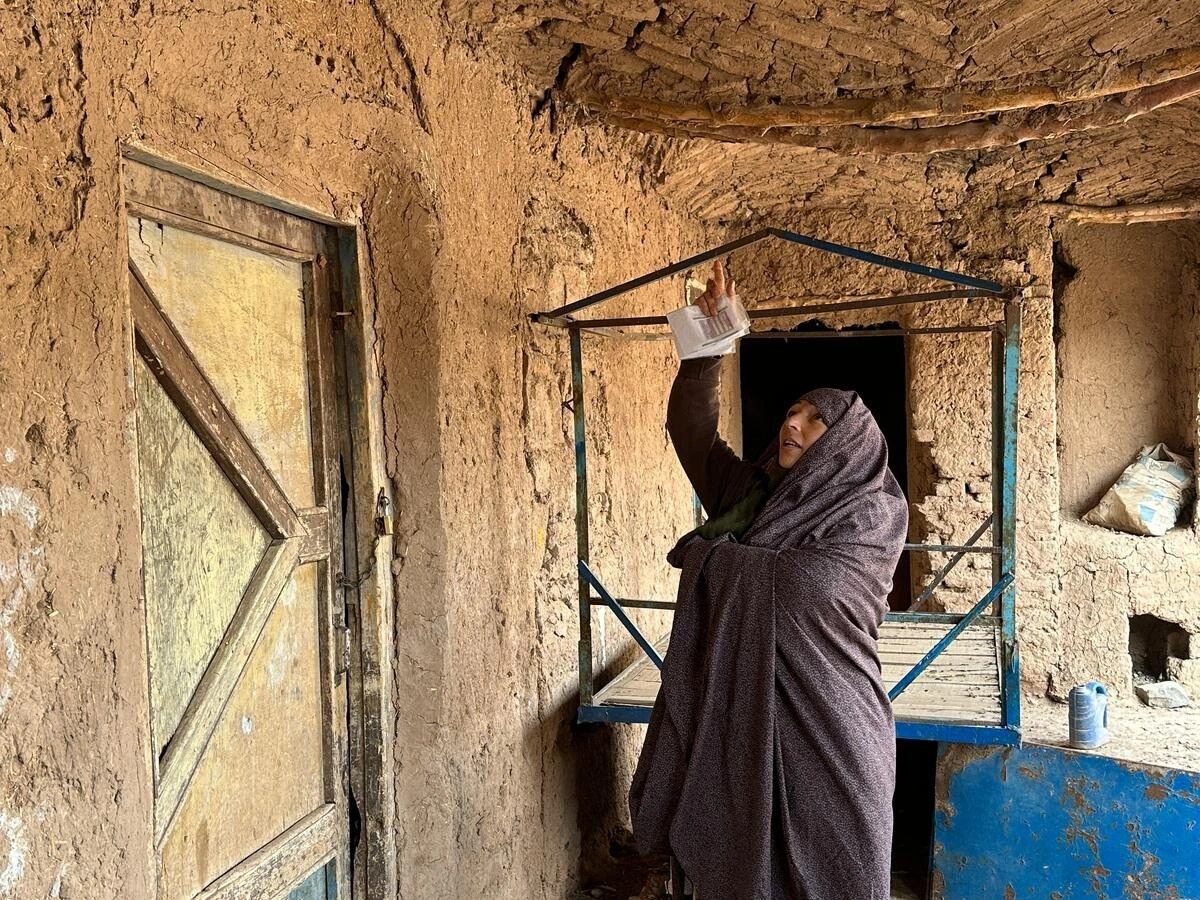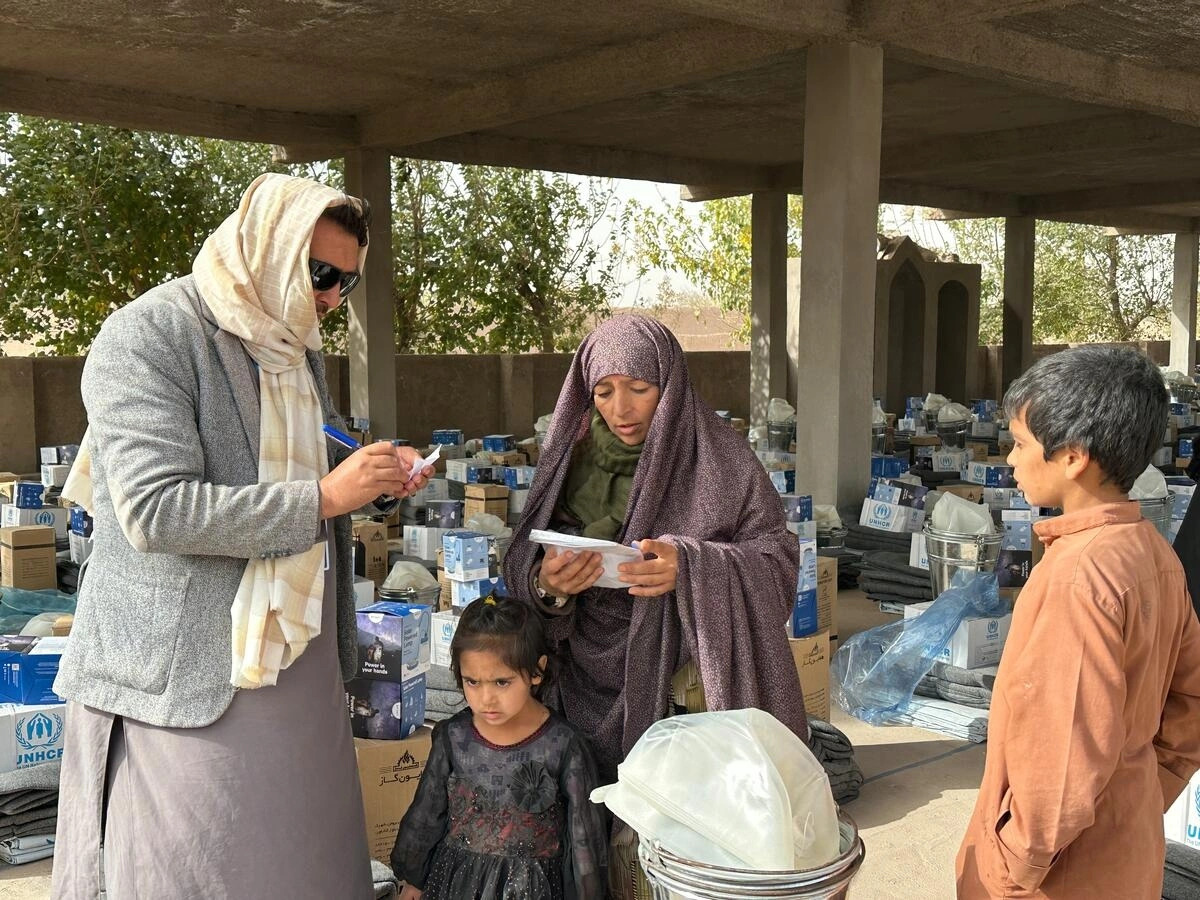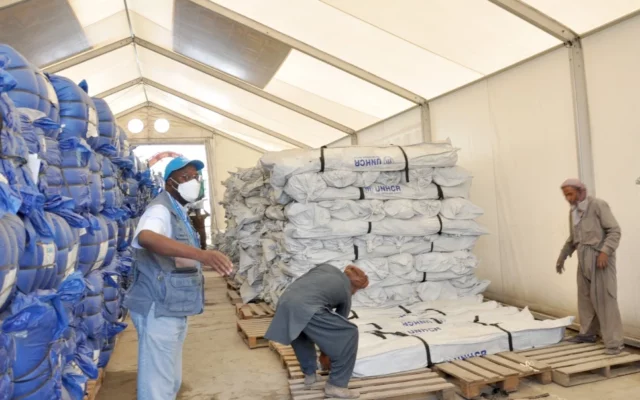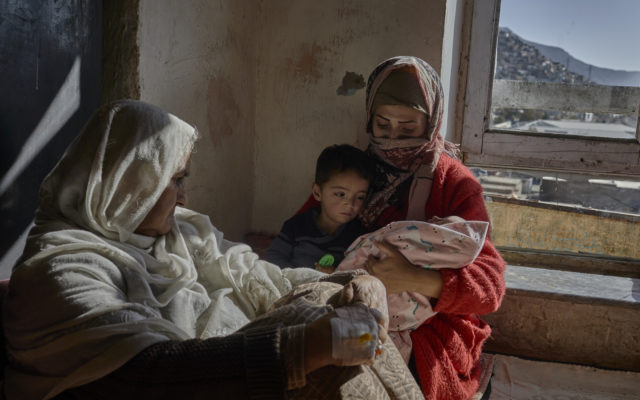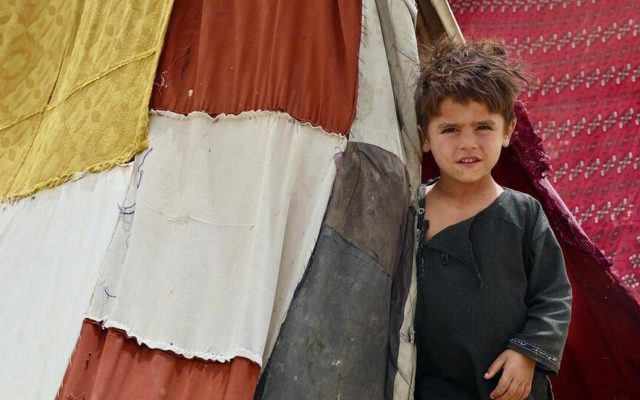Survivors of deadly earthquakes in Afghanistan struggle to recover
One month on, tens of thousands of survivors are still sleeping outdoors as concerns mount about the coming winter.
07.11.23
Humaira with her baby son, who she gave birth to on the same day the first earthquake struck, in the tent she received from UNHCR. © UNHCR/Caroline Gluck
A large crowd has gathered in Rubat Perzada village, in Injil District, in Afghanistan’s western Herat Province, as residents wait to receive desperately needed aid, one month on from the series of devastating earthquakes that shook the province.
The disaster left at least 1,480 people dead, and more than 30,000 homes destroyed or severely damaged. In this village, almost everyone is still sleeping outdoors. Many have lost their homes while others are too scared to return due to the risk of further aftershocks.
UNHCR, the UN Refugee Agency, and its partners, are distributing emergency tents and other relief items, including blankets, solar lamps, plastic tarpaulin sheets, solar lamps and gas cylinders for cooking. Women are also given hygiene kits for sanitary purposes.
Among the more than 300 households receiving aid is 32-year-old Humaira and her family.
On 7 October, Humaira had given birth at a local clinic in the early hours of the morning and returned home with her newborn. She was preparing a snack when the first 6.3 magnitude earthquake struck. Clutching her baby son, she sat in a corridor, dazed and still weak from hours of labour. Her husband and their seven other children found her covered in dust from the damaged roof. The house also has cracks along the walls and floor, while part of an outside balcony wall has collapsed.
For the past few weeks, the family have been sheltering outdoors under a flimsy plastic sheet and some blankets. “The wind shakes the shelter from day to night. There are many insects coming inside and the floor and blankets are wet, causing us all health problems,” said Humaira, adding that her baby cries constantly because of the cold.
The hazards of sleeping outdoors are clear: next to their makeshift shelter stands an empty wire frame – all that remains of the shelter belonging to another family that was blown away by strong winds the night before.
“With this new tent, it will be better. We’ll have more space and be more comfortable,” she said. But she still worries about her baby. “He’s small and needs proper care; I’m worried about his health and that he may die … we really need proper shelter this winter.”
Funding shortage hampers response
Aid agencies, including UNHCR, have launched emergency appeals to scale up their work and respond to the urgent needs, but other global emergencies and donor fatigue have left agencies wrestling with funding shortfalls. Before the earthquakes, Afghanistan was already facing a severe humanitarian crisis and now there is a competing emergency as neighbouring Pakistan begins deporting thousands of undocumented Afghans daily.
Tents housing earthquake survivors and deportees line the roadsides in and around Herat city and surround the centuries-old citadel.
Traditional clay-built domed homes in the district of Zinda Jan, about 90 minutes-drive from the city centre and at the epicentre of the first quake, were totally destroyed. Now, sandstorms and cold winds lash those who leave the scant comfort of their tents.
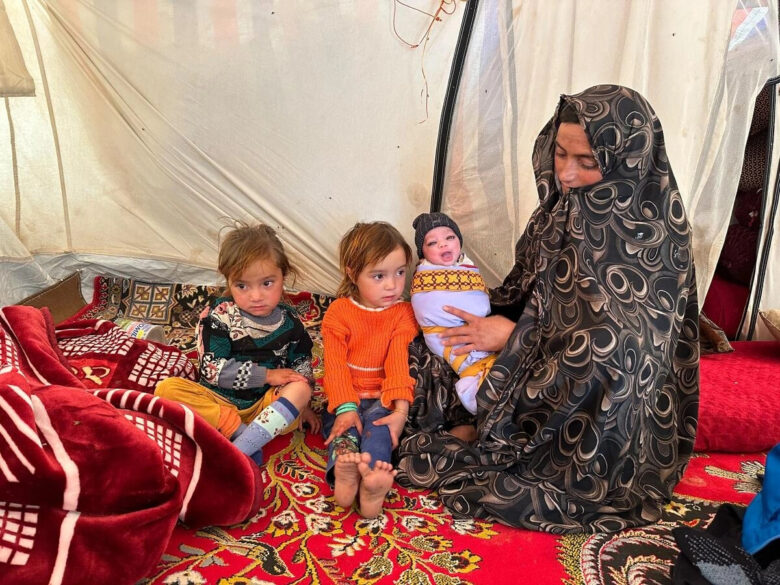
Sharifa with her baby daughter, Marzia, and 4-year-old twins Rokshana and Sabriya. Another daughter was killed when the family’s home collapsed during the first earthquake. © UNHCR/Caroline Gluck
In one such tent, Sharifa, 25, nurses her daughter, Marzia. She was born three days after the first quake destroyed the family’s home, killing four people, including Sharifa’s 8-year-old daughter. Her twin 4-year-old daughters, Rokshana and Sabriya, are subdued. “They cry every day; they miss their elder sister,” said Sharifa.
Many people are still in a state of shock, particularly women and children, who were more likely to be at home when the first and most destructive quake occurred. UNHCR is providing psychosocial support, through a national partner, to help them recover from the trauma.
Many men, like Ghazi, were working in neighbouring Iran when the earthquakes struck. He returned to find the family home destroyed.
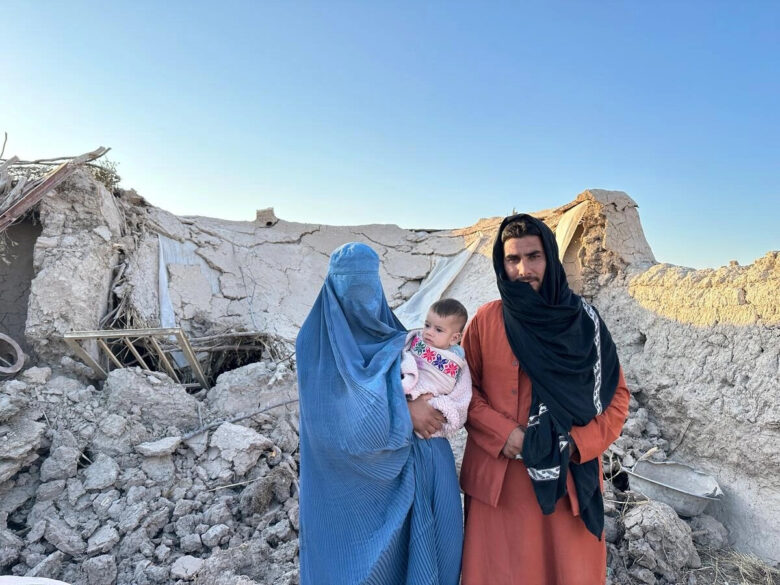
Ghazi returned from Iran, where he had been working, to find the family home destroyed. © UNHCR/Caroline Gluck
“I’m making clay bricks to try to rebuild the house,” he said, pointing to a big pile around his tarpaulin shelter. “Our home survived the first quake but collapsed in the second. We need to rebuild, but we have no money to pay for labour.”
Like Ghazi, Sharifa’s main worry is finding better shelter before winter sets in. “Life is very difficult in a tent; we have no clothes for the baby, no cot; it is cold and windy, and almost everyone is sick. We need support.”


